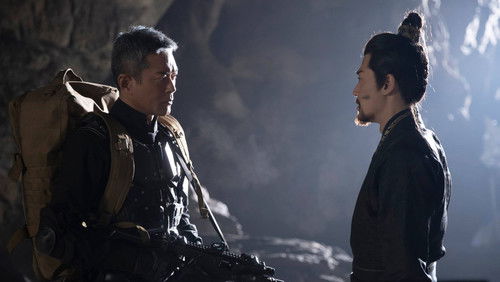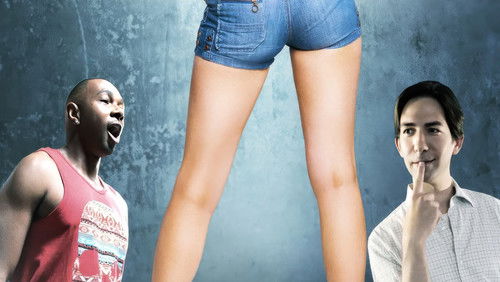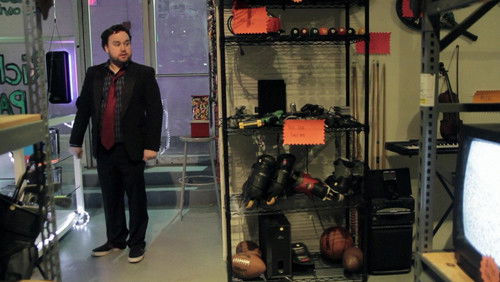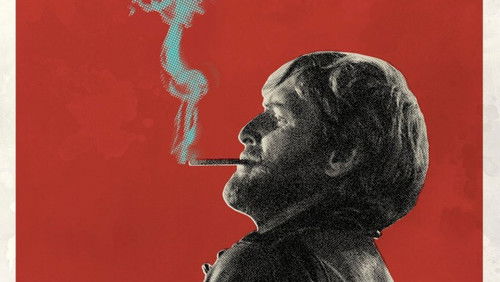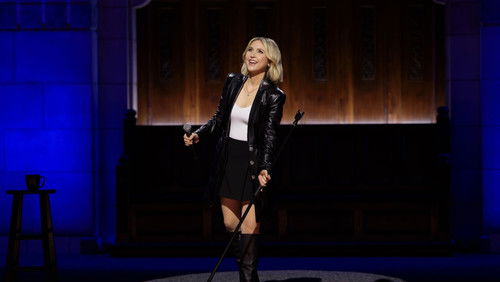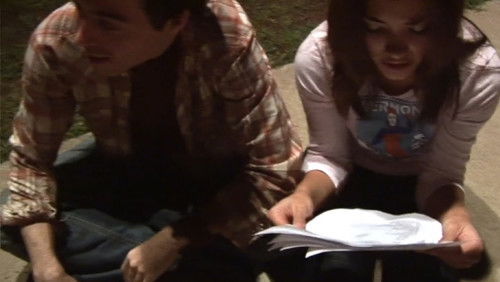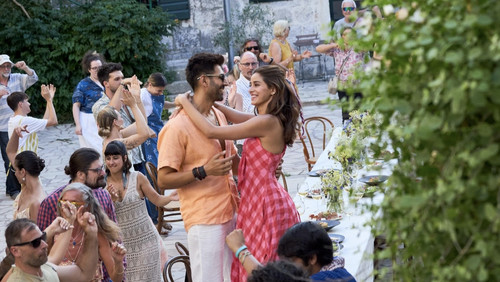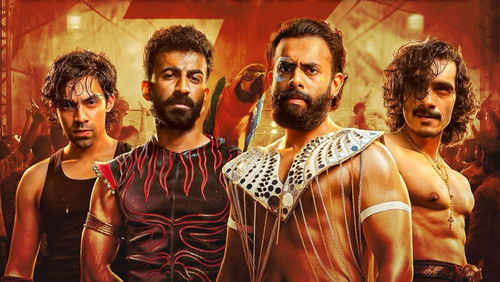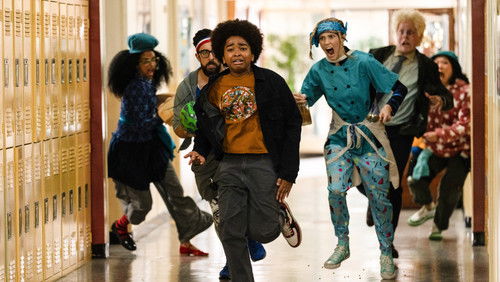Nacional III (1982)
8KNacional III (1982). 1h 42m
“After being forced to sell his old Madrid palace , the Marquis of Leguineche (Luis Escobar) moved to a flat with his son Luis José (José Luis López Vazquez) , his faithful servant (Chus Lampreave) and Father Calvo (Agustin Gonzalez) . When the father of Chus (Amparo Soler Leal) dies , leaving her entire fortune , the Leguineche family go to Extremadura to attend the funerals and promote the reconciliation of the couple . Achieved this purpose , they sell their properties and return to Madrid . Later on , they decide to carry the cash to abroad . They attempt to transport the money by sending it at a convent and by a courier (Francisco Merino) , but it foils . After several failed attempts , they decide to do so , and ultimately , the family achieves their goal , as they get undercover in Luis Joseu0026#39;s plaster , posing as an ill person and going by train to Lourdes . The Leguineche are installed in Biarritz where meet Álvaro (José Luis de Vilallonga) , but the electoral victory of the French Socialist Party forces them to repeat the same operation, but this time towards Miami .u003cbr/u003eu003cbr/u003eAfter getting success with ¨Escopeta Nacional¨ and u0026quot;National Heritageu0026quot; and a great popularity by Luis Escobar playing the offbeat marquis , it led to filmmaker Berlanga , writer Azcona and producer Alfredo Matas to make this third outing , dealing with the national policy : Febrery 23, 1981 coup du0026#39;etat , about the power rising of Socialists with Felipe Gonzalez , and tax evading using the special train of pilgrims going to Lourdes . In the flick there are especially busy comedy , ironical humor , frantic pace , amusing gags , rowdy satire about an odyssey to evade paying taxes , strange roles , noisy hustle and social critical . Furthermore , it contains certain confusion and relies heavily in exaggerated mayhem ; being in anyway clearly inferior to former films . One time finished the Franquist dictatorship , Berlanga along with his regular screenwriter Azcona carry out the realization a known trilogy about the political and social Spanish situation , concerning on the peculiar aristocratic family of the Marquis of Leguineche . Shot in long , complex shots : ¨Planos Secuencia¨, with a lot of rare roles talking , shouting and walking . The main and support actors stand out under perfect direction of Berlanga , including a bitter , pessimistic mirror on the Spanish society by that time and of the ambitious aristocracy , especially . We can find very fun roles , all of them caricatures and mirrors of the Spanish society . The movie displays a Spanish star-studded , such as : the egoistic Jose Luis López Vázquez , the loud-mouthed priest Agustin González (Berlangau0026#39;s also regular), Amparo Soler Leal (married to producer Alfredo Matas) , Chus Lampreave (Almodovaru0026#39;s ordinary), and , of course , Luis Ciges . Berlangau0026#39;s conceptual and political audacity, so evident in this film that achieved a considerable hit . It turned out to be a nice picture plenty of diverting situations as well as black humor and social hypocrisy .u003cbr/u003eu003cbr/u003eDirection by Luis Garcia Berlanga is acceptable but inferior to precedent films , including a bitter , pessimistic mirror on the Spanish society by that time . Made in similar style to Italy comedy of the 50s and 60s that was previously brought by Rafael Azcona in Spain . Luis shows his skill for edition , realizing long shots with crowd who moves easily . The long Berlangau0026#39;s career began during the 50s when filmed several polemic movies , all of them were beset by difficulties with the censors caused by real critical to social stratum such as ¨Bienvenido Mister Marshall¨ (1953) , a very good film which tended not to be very well received by the censor for its acidity and considered to be one of the best Spanish films of the history , including a strong portrait of society and plenty of sharpness . His next was ¨Los Jueves, Milagro¨ (1957), it delayed for several years before its eventual release . Subsequently , he made ¨Placido¨ (1961) , this is the film debut for the great producer Alfredo Matas and received an Oscar nomination in 1963 , being well-received at the International Festivals , reviewing the useless charity . Later on , Berlanga made one of his best films: ¨El Verdugo¨ (1963), one of the undisputed masterpieces and fundamental in filmography of Berlanga and shot at the height of his creativity , in a period cultural difficult, where the enormous censorship of the political regime, exacerbated the ingenuity and imagination of the scriptwriters . He continued filming other interesting pictures as in 1973 he went to Paris to begin filming ¨Grandeur nature¨ with Michael Piccoli , another problematic film here very far from the tenderness carried out in previous works , focusing this time on the fetishism of a man who falls in love with a doll . Several years later , after Francou0026#39;s death and one time finished the Franquist dictatorship , Berlanga along with his regular screenwriter Azcona carry out the realization a known trilogy about the social Spanish situation , concerning on the peculiar aristocratic family of the Marquis of Leguineche where he clarified the evident disorders in the Spanish upper , middle-class upon being confronted with a new political status-quo , realizing a sour denounce of the Spanish society . He also shot a peculiar film titled ¨La Vaquilla¨ (1985) set in the Spanish Civil War , resulting to be the first time dealing with this convulsive period in comedy style . Following the same themes, he went on filming coral films such as ¨Moros and Cristianos¨ and ¨Todos a Carcel¨ (1993) that won three Goya Awards for Best Film, Best Director and Best Sound .”
